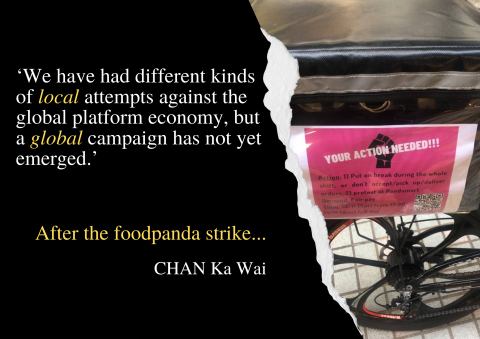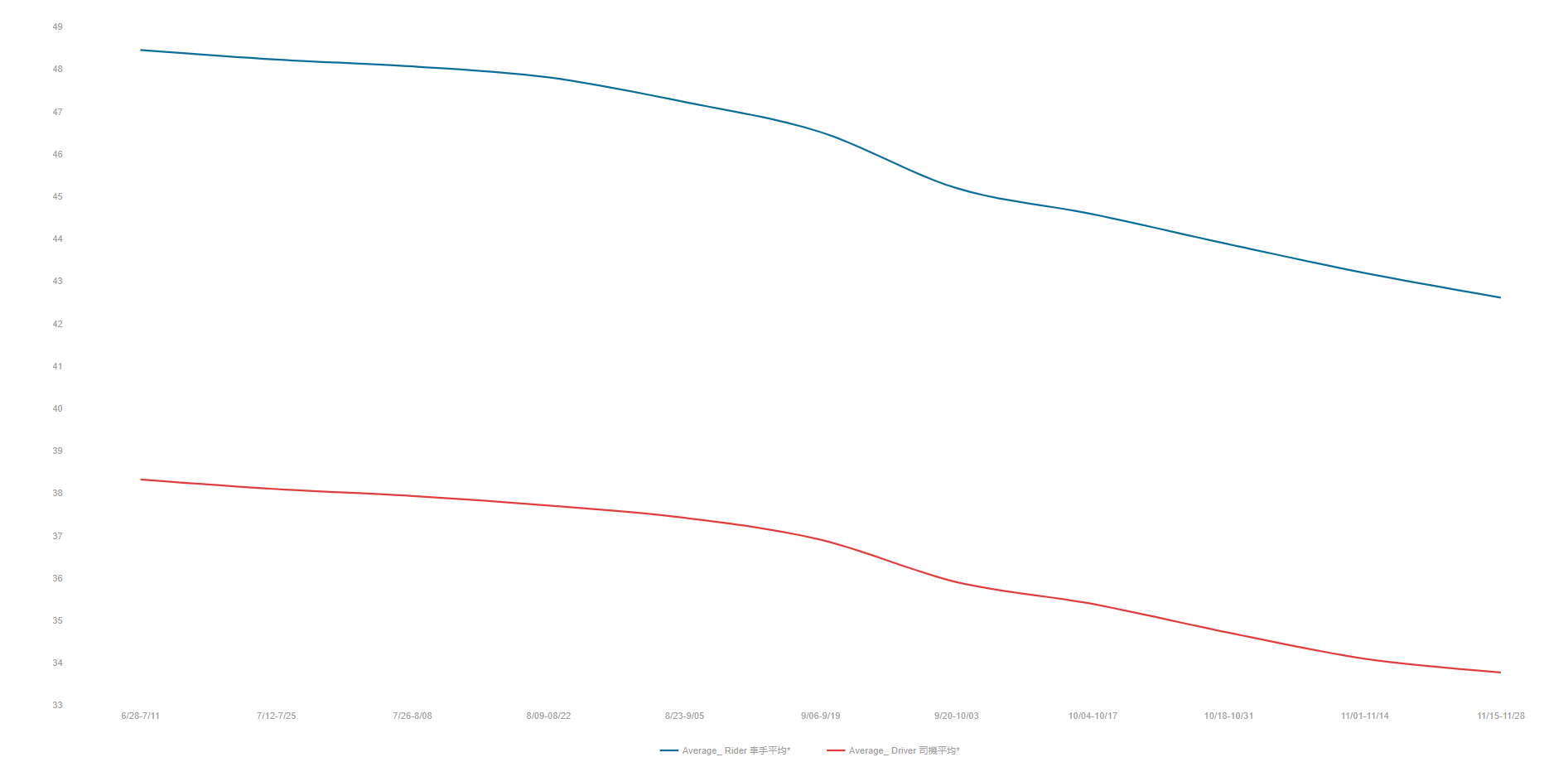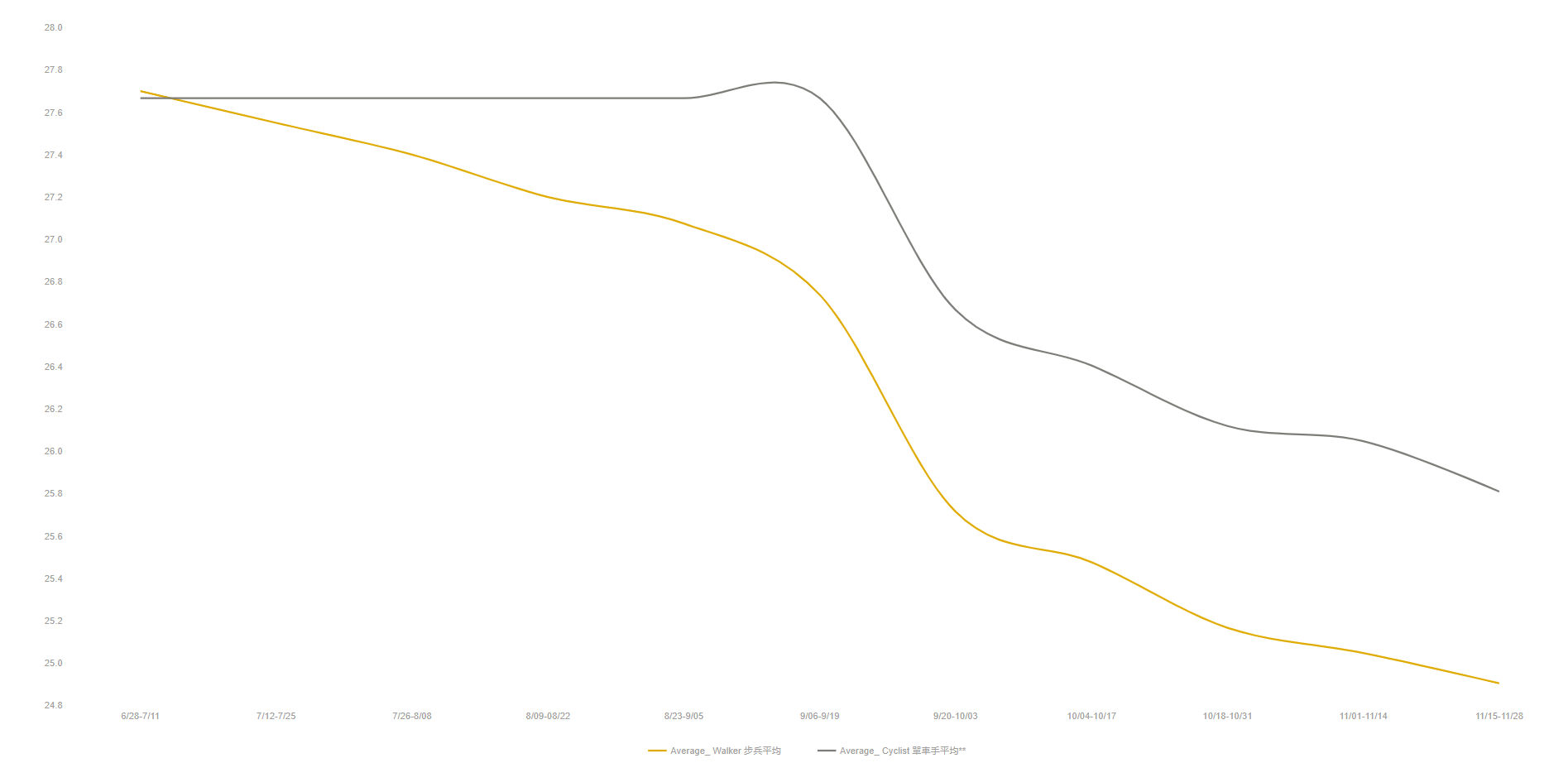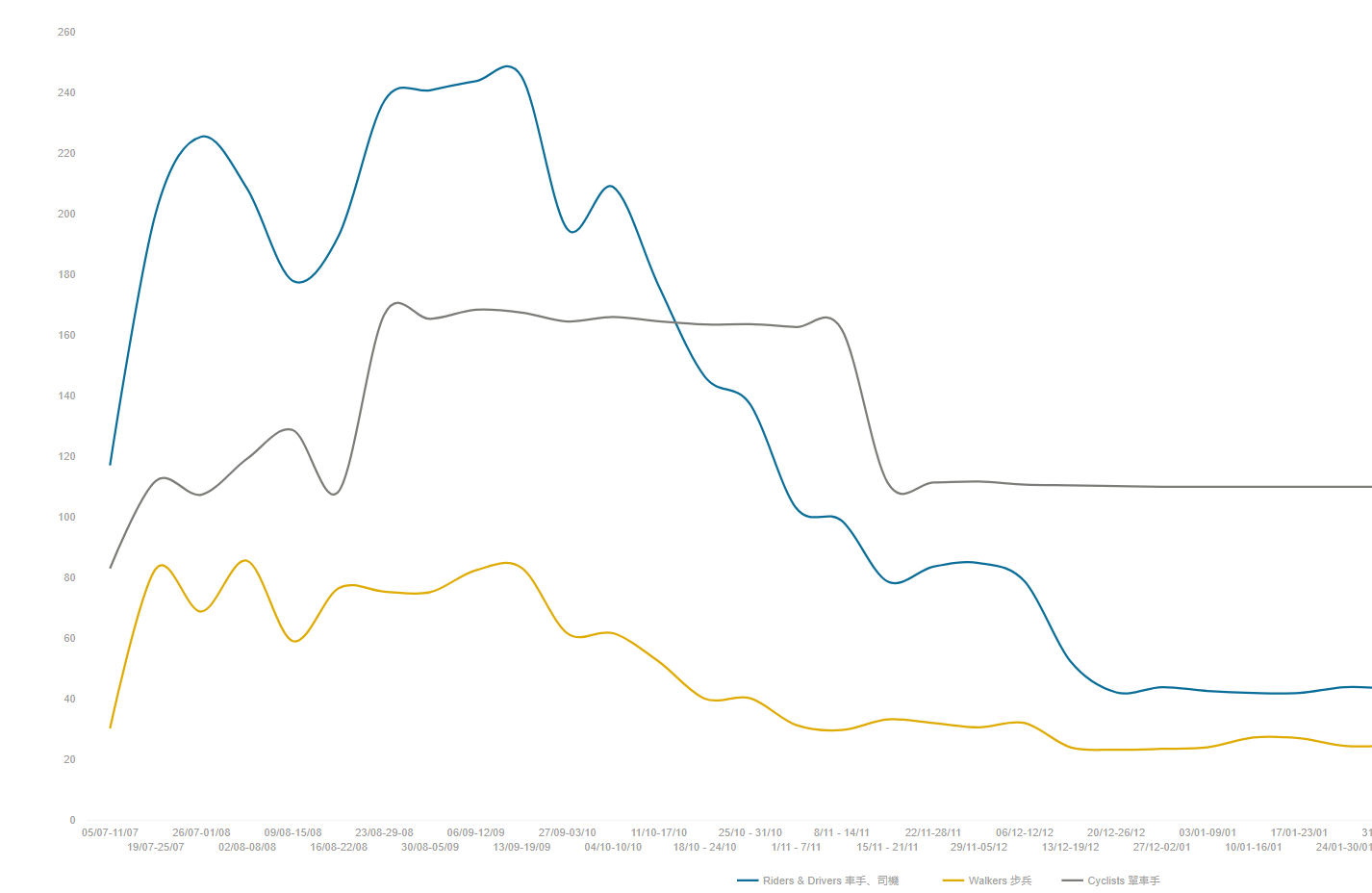
CHAN Ka Wai
Labour Action China
February 10, 2022
It has been about three months after the Hong Kong foodpanda strike in November 2021. Food delivery is one of the fast-growing industries in the globe. The industry prevails in big cities throughout the world. Similar strikes not only occur in Hong Kong, but also in other places, like London and Brussels. More strikes are expected to come due to the increasing labour conflicts in the industry. What can we learn from the recent strike in Hong Kong?
1. Strike under the shadow of the National Security Law in Hong Kong
The foodpanda strike attracted wide media attention in Hong Kong. From the field observation, 30-40 reporters and journalists were waiting for the negotiation result between the foodpanda management and the workers. More than a hundred police were patrolling around. The strike is the first strike after the disbandment of the Confederation of the Trade Unions of Hong Kong (HKCTU) under the shadow of the National Security Law. The strike is not a large-scale one and the workers did not go for petition on street, but abundant media attention had not been expected.
HKCTU's disbandment has hit the Hong Kong labour movement seriously, but labour disputes will not stop. As a fast-growing industry, food delivery has absorbed many ethnic minorities and young people because the industry does not require high qualifications and is easy to go in and go out. But the labour relation is blurred and undefined. Like many places, food delivery platform companies claim that all workers are self-employed and enjoy high flexibility on their job. The workers manage their own jobs. But, in fact, many aspects of the job are controlled and instructed by the platforms with sophisticated algorithm. Due to keen competition in the industry, food delivery companies have continuously cut the pay. It causes the recent strike eventually.
The following charts[1] show clearly that the average base pay of all kinds of foodpanda couriers have dropped continuously. The extra service fee at peak hour also dropped until the drop stops after the strike, but the pay still stays in a low level.
Table 1: The trend of average base service fee (Hong Kong foodpanda’s Rider and Driver)

Table 2: The trend of average base service fee (Hong Kong foodpanda’s Walker and Cyclist)

Table 3: The trend of average total peak hour extra service fee (Hong Kong foodpanda couriers)

The strike is over, but the labour relation remains unchanged because the workers’ income does not improve a lot. Therefore, labour conflicts are expected to come. Hong Kong’s trade unions are severely attacked under the National Security Law. Independent labour organizations have become quiet, but the labour relations remain tensed. Now trade union is forcefully marginalized, but the Government is incapable of handling the labour disputes. The existing socio-political situation in Hong Kong makes food delivery workers more vulnerable.
2. Global business
In Hong Kong, the two giant food delivery platforms, foodpanda and Deliveroo, have occupied almost 95% of the total food delivery business. Both platforms are transnational companies. When the workers were negotiating with the management, two companies also mentioned that the local offices could not make final decisions. They had to consult their head offices respectively. The labour disputes in the food delivery industry are not only a matter of local labour disputes, but also a matter of global business. It is closely related to the unequal power structure of global business.
Labour Action China (LAC) and its close partner, Hong Kong Christian Industrial Committee (CIC) are relatively experienced in the campaign against global supply chain. Food delivery is in substance different from the global supply chain campaign, but by nature it is still an unequal power structure imposed by transnational corporations. For the Hong Kong management of the two platform companies, the head offices still make the final control. Some scholars suggest that it is still a global supply chain issue with advanced telecommunication.
3. International campaign?
3.1. Racial inclusion or conflict?
In Hong Kong, both the recent foodpanda strike and the Deliveroo strike nearly two years ago were led by the ethnic minorities. Ethnical minorities have been in a more unfavorable employment situation in Hong Kong. Many of them can only find labour-intensive work. In comparison with local Chinese workers, ethnic minority workers have generally worked much longer in the food delivery industry. They see the job as a long-term job for their family earnings, but local Chinese workers comparatively take this job as a part-time or temporary job, especially for those who join in during the COVID-pandemic. In the strike, when all workers suffered from pay cut for each order, local Chinese workers are also terribly angry but they seldom come out to fight for justice. Since the ethnic minorities see the job as a long-term job, any pay cut adversely influences them and their families. They are thus more willing to come out to defend their rights.
The two above-mentioned strikes are dominated by ethnic minorities. It seems that few local Chinese workers joined in. But during the foodpanda strike, many local Chinese workers also joined in the “no pick-up” movement. That was why the foodpanda management were forced to come for the negotiation table in a short time after the strike had begun. In the industry, both ethnic minority and local Chinese workers have their own concern, but this does not mean that both camps could not come together.
It is a world-wide phenomenon that the food delivery industry has absorbed many ethnic minorities in various places. It is not only a matter of labour rights, but also a matter of racial inclusion. It is both to protect workers’ rights and to promote peaceful coexistence of different races/ethnicities in the cities.
3.2 New wine into old wineskins?
In the operation of the global supply chain, there is a clear power relationship shifted from the brand to the manufacturers, and then to workers. The brands can take final control through such shift of the unequal power relationship. On this perspective, the global trade in the food delivery industry is similar because the transnational platform companies hold the power of final control on the delivery system and the working relationship at the local level through an unhuman algorithmic system. The shift of the unequal power relationship is also from the multinational platforms to their local offices and then to food delivery couriers. Telecommunication advance just makes the shift of the unequal power relationship from physical to virtual. Due to its virtual character, the platforms’ economic activities become more mechanical and unfavourable to humans (the workers). But such mechanical system is still controlled by the transnational platform companies. So, such unhuman character is both manipulated and automated.
In the global supply chain, the campaign also goes along similar path as the business. Since production is no longer in the North, the global campaign is decided or dominated by the groups in the North who launch campaigns against the brands with the assistance of the groups in the South. Now can this model in the campaign against the global supply chain work in the global platform economy too? The difference, to LAC, is not the change in the business from physical to virtue. The shift of the unequal power relationship in the global platform economy remains similar to that in the global supply chain. The most different one is that the labour exploitation is not only happening in the South, but also in the North. Labour struggles against the global platform economy have emerged in many cities both in the North and South. The campaign against the global supply chain is a lineal model, from the North to the South, but now the campaign against the global platform economy could be a circular model. Various kinds of local attempts are pointing to the platform economy in their own contexts. We have had different kinds of local attempts against the global platform economy, but a global campaign has not yet emerged. Initiatives across countries in Europe have been raised but their impacts are not yet clear. Some attempts are being made by the EU and international bodies, international unions or labour organizations with the support and assistance of the academics. We hope they could create a new model.
Moreover, there have been similar attempts in the protection of the labour rights of the workers in the platform economy in different local contexts. Most attention was drawn to improve the existing provisions to provide better and wider legal protection in individual counties, but seldom to promote a global campaign or a set of global regulations to regulate the labour practices of the platform economy in the whole world. Provisional change at the local level seems to be the dominant way to protect the labour rights in the global platform economy today.
4. Conclusion
The foodpanda strike is not an isolated case. It is rather a part of the global campaign against the global platform economy. In terms of the shift of the unequal power relationship, the global platform economy follows the same path of the global supply chain. The power is controlled by the transnational platform companies. But the global campaign is not like the campaigns in the global supply chain because the labour exploitation is really global. It is happening in all the main cities in the world. Focus in different countries are dominantly upon the improvement of the existing provisions to regulate the labour exploitations at the local level. A global campaign and a set of global regulations have not yet emerged so far. Moreover, the industry, especially food delivery and ride-hailing services, has absorbed a lot of ethnic minorities in different cities. It is not only a matter of labour rights, but also a matter of racial inclusion and equality.
It is a huge challenge for the international community. Attempts by the international community have been raised but there are still many things to do.
[1] Riders' Rights Concern Group, Hong Kong Christian Industrial Committee, “foodpanda Service Fees Tracker” (Jan 18, 2022). https://www.notion.so/foodpanda-Service-Fees-Tracker-fe887c13b13b4c079e577a745cd46f61, accessed on Feb 9, 2022.
